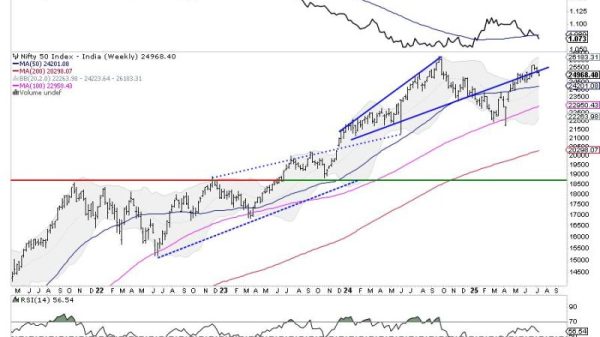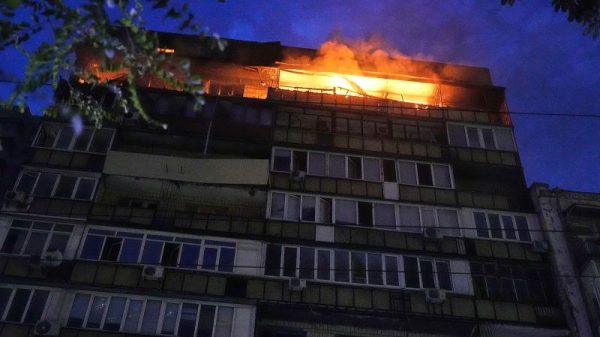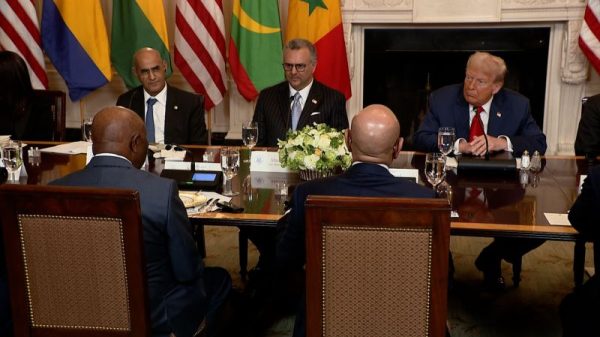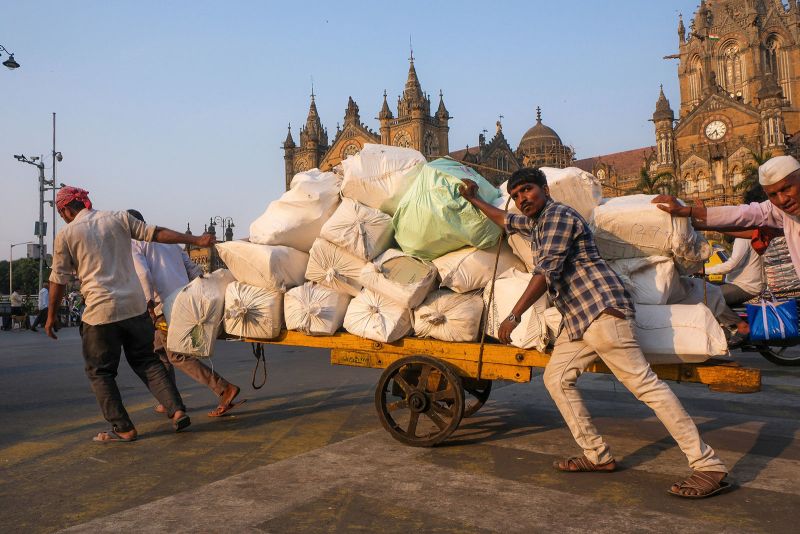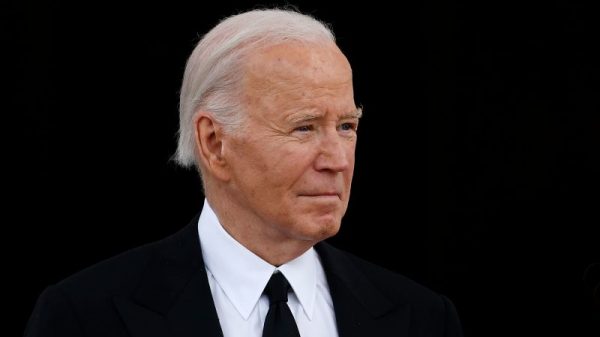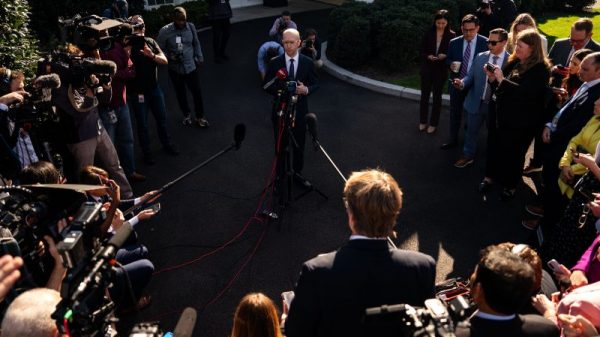Chanu Gupta has lived in India’s financial capital Mumbai nearly his whole life, since arriving as a child from the northern state of Uttar Pradesh.
But when polls open in the city, the 59-year-old street vendor won’t be able to vote in the nationwide election – along with millions of internal migrant workers who are a major backbone of the country’s economy.
Under India’s election rules, eligible voters can only cast ballots in their constituencies – meaning those working outside of their state have to return home to vote.
That’s all but impossible for many out-of-state workers, especially underprivileged daily-wage workers in the unorganized sector. And it’s a huge group – one study estimates there were about 600 million internal migrants in 2020, making up 43% of the country’s nearly 1.4 billion population at the time.
These workers are often from poorer rural parts of India, in search of work in bigger cities. Even then, they earn low wages that are usually sent home to support family members.
Perhaps nowhere is this starker than Mumbai – India’s richest city and the birthplace of the Bollywood movie industry. Often referred to as the “city of dreams,” Mumbai draws migrants from across the country hoping to find wealth and success.
More than 43% of Mumbai’s population were classed as migrants in 2011 during the last national census, according to migration think tank Knomad. Many come from states with higher poverty and unemployment rates such as Uttar Pradesh, Bihar, Rajasthan and Gujarat.
Signs of that diverse mix are everywhere in Mumbai – the varied languages spoken, the many day laborers across the city, from auto-rickshaw drivers to construction workers and sugarcane juice vendors lining the streets.
For these workers, forgoing daily wages to head home to vote would come at a high cost – both in the money they would spend getting there, and lost wages. And those losses have a ripple effect on the family members back home dependent on their income – from children missing out on tuition fees to elderly parents’ rent and food costs.
The Covid-19 pandemic only underscored the volatility of migrant workers’ circumstances when millions lost their jobs almost overnight and were forced to go home.
“Despite the living expenses being relatively high in large cities as compared to villages, their wages are considerably low causing poor living conditions including limited or non-existent public services such as water and sanitation,” said one United Nations-led study that examined the impact of the pandemic on this segment of the workforce.
Gupta said his shaved ice business relies on the hot summer months when the election takes place. “If I go to vote, I lose my business. Earning my living is more important to me than voting as I have to support my family,” he said.
“There are many migrants like me who are in Mumbai to earn money and are not able to vote.”
India’s diaspora
Many Indian citizens abroad – part of the massive global Indian diaspora – face the same problem, though their circumstances vary considerably.
Most are low-income laborers who helped build the economies and glittering cities of oil-rich Arab nations, while some are middle or upper-class students pursuing an international education or professional career in Western countries.
According to government figures, there are 13.6 million such “non-resident Indians,” or NRIs, globally. The biggest group is in the United Arab Emirates, with 3.4 million NRIs, followed by 2.5 million in Saudi Arabia; next is the United States with 1.2 million.
The plight of NRIs in Gulf nations – many of whom live in cramped dormitories and labor camps – was also highlighted during the pandemic when businesses shut down, wages dried up and border restrictions prevented them from returning home, leaving them in limbo.
For these overseas Indians, there is no such thing as online voting or postal ballots. Instead, NRIs must register as an “overseas voter” then travel to their hometown in India to be physically present in their constituencies to vote.
Local media reports highlight some dedicated voters with the means to fly back and vote, such as professionals in the United Kingdom or Dubai. But they remain a tiny minority of NRIs who do so.
According to the Election Commission of India, in the last national elections in 2019, more than 71,000 people registered as “overseas voters” – less than 1% of the total NRI population at the time.
Push for voter turnout
Indian authorities have pushed hard in recent years to increase turnout, urging all 968 million eligible voters nationwide to cast their ballots – a massive feat that includes setting up more than a million polling stations from remote forests to mountain peaks.
The ECI has also launched voter literacy initiatives and social media campaigns targeting young voters.
These efforts saw the highest voter turnout in the country’s history in the 2019 election, with more than 67% of Indians going to the polls.
The massive group of disenfranchised migrant workers stands in sharp contrast to these achievements – with no solution in sight.
In a 2011 study that surveyed workers across five Indian states, 60% of respondents had “missed voting in elections at least once because they were away from home seeking livelihood options.” It added that many migrants left home as young as age 13 to look for work – and did not have time to get their voter IDs when they became eligible at age 18.
The ECI acknowledged this problem in a 2022 report, raising the question of how to improve voter participation among internal migrants.
One issue the voting body highlighted was the absence of any clear definition of an internal migrant, adding that their inability to vote is a key reason “contributing to low voter turnout.”
The ECI said it had proposed remote voting machines to address the problem. But in 2023, the government said there were no such plans.
That means for now, voting remains an unlikely reality for many migrant workers.
“I cannot say now whom I would vote for if I was in my hometown,” said Gupta, the Mumbai vendor. “That is the last thing on my mind – my focus right now is earning my livelihood.”








